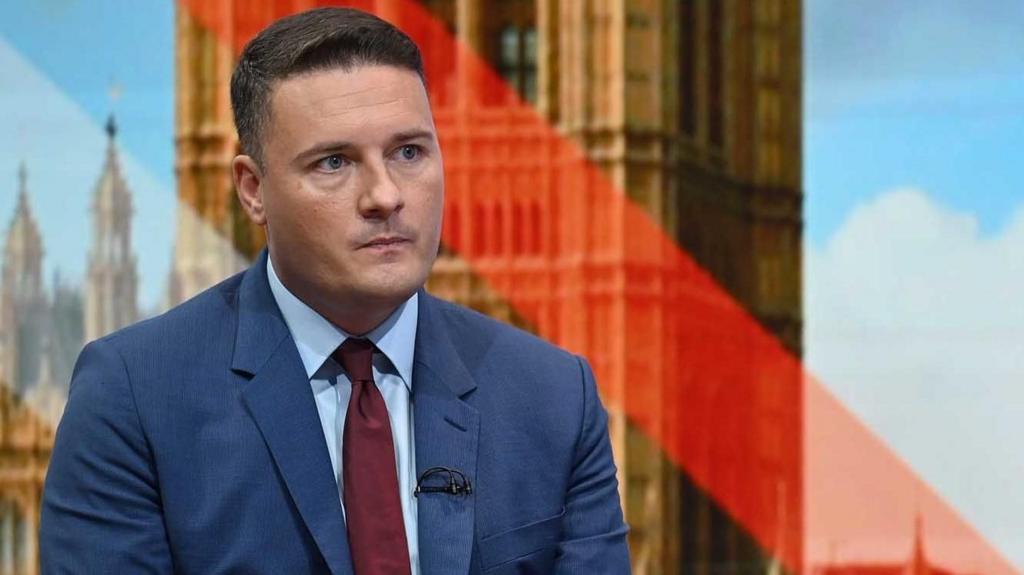“`html
Following significant concessions, the government is in a “better position” to pass its welfare reforms, according to the Health Secretary, who acknowledged leadership missteps in the bill’s initial rollout.
Wes Streeting stated that Labour MPs had raised “substantial” concerns regarding the planned welfare cuts, leading to a strengthening of the government’s proposals.
Last week, the Prime Minister was compelled to make a dramatic U-turn to avert a defeat in the House of Commons, after more than 120 Labour backbenchers threatened to vote against the plans.
“We are in a much better position this week than last week,” Streeting told the BBC’s Sunday with Laura Kuenssberg, adding that the government must “learn” from narrowly avoiding a rebellion.
Streeting indicated that the government had shifted “not just the package but also the approach” in response to criticism that the original proposals risked undermining support for disabled individuals.
The government faced a growing rebellion from Labour MPs last week, who warned that the planned welfare cuts, aimed at saving £5bn annually, were rushed and would disproportionately affect vulnerable populations.
The initial plans, intended to reduce the welfare bill, would have made it more difficult for individuals to claim Personal Independence Payment (PIP), a benefit currently received by 3.7 million people with long-term physical or mental health conditions.
The backlash culminated in a late-night announcement of major concessions to the dissenting MPs, including limiting PIP cuts to only new claimants.
The government also reversed its plans to freeze the health-related component of Universal Credit, which will now rise in line with inflation for existing recipients.
Further, the government announced plans for a review of the PIP assessment, to be led by Disabilities Minister Sir Stephen Timms and “co-produced” with disabled individuals.
Louise Haigh, a leading figure among the rebel MPs, told the BBC that she now intends to support the bill following the government’s changes.
Speaking on the same program, Haigh, the Labour MP for Sheffield Heeley, stated that her fellow rebel MPs are “really pleased that the government has now listened to those concerns and they’ve made a significant number of concessions.”
Subject to seeing the final details of the changes, she said: “I will be supporting the government on Tuesday in recognition that they have made significant progress and that they have protected the incomes of nearly 400,000 disabled people across the country.”
Haigh noted that the row had exposed “serious issues” with the Prime Minister’s leadership within his own party, leading to “frustration” among backbench MPs.
“This is a real opportunity to reset that and to learn serious lessons,” she added.
Rebels have indicated to the BBC that their colleagues are satisfied with the concessions, suggesting that the Universal Credit and Personal Independence Payment Bill will not be blocked in a vote on Tuesday, although some Labour MPs have stated their intention to still vote against the proposals.
The episode has raised questions regarding the Prime Minister’s political strategy and his ability to manage internal dissent.
Over the weekend, Sir Keir Starmer gave an interview with the Sunday Times to defend his handling of the row, pointing out that he was abroad attending a NATO conference during the peak of the rebellion.
Speaking on Sunday with Laura Kuenssberg, comedian Rosie Jones said she has “seen no evidence” that the government “genuinely care for disabled people and our future.”
Ms. Jones, a campaigner for disability rights, stated that the planned welfare reforms were “incredibly disappointing” to her as a Labour voter.
“This is not a Labour government that I recognise,” she said.
Shadow Work and Pensions Secretary Helen Whately accused Labour of “delaying or canceling” Conservative plans to reform welfare, resulting in a “wasted” year.
“We find ourselves one year later in a worse situation than we were when they came into power,” she told the BBC.
She referenced a report by the Centre for Social Justice, which argued that cutting mental health benefits for all but the most severe cases could save £7.4bn per year by 2030.
The report argued that these savings could fund 1.5 million additional therapy courses for people with mental health conditions.
On Sunday, Streeting defended the government’s intentions, stating that the reforms are necessary to ensure the long-term sustainability of the welfare system.
“No one will thank us if we carry on with the status quo,” he said.
“Unless you reform this system, I genuinely fear it will not be there for anyone in the future.”
Streeting did not rule out future changes to welfare following the Timms review.
Asked if there could be further concessions on personal independence payments, he said, “we have got to listen.”
His comments followed Sir Keir’s claim that “fixing” the welfare system is a “moral imperative.”
The Prime Minister told the Welsh Labour Party conference in Llandudno on Saturday that the government would not take away the welfare “safety net that vulnerable people rely on.”
However, he stated that he could not let benefits “become a snare for those who can and want to work.”
Sign up for our Politics Essential newsletter to keep up with the inner workings of Westminster and beyond.
“`

